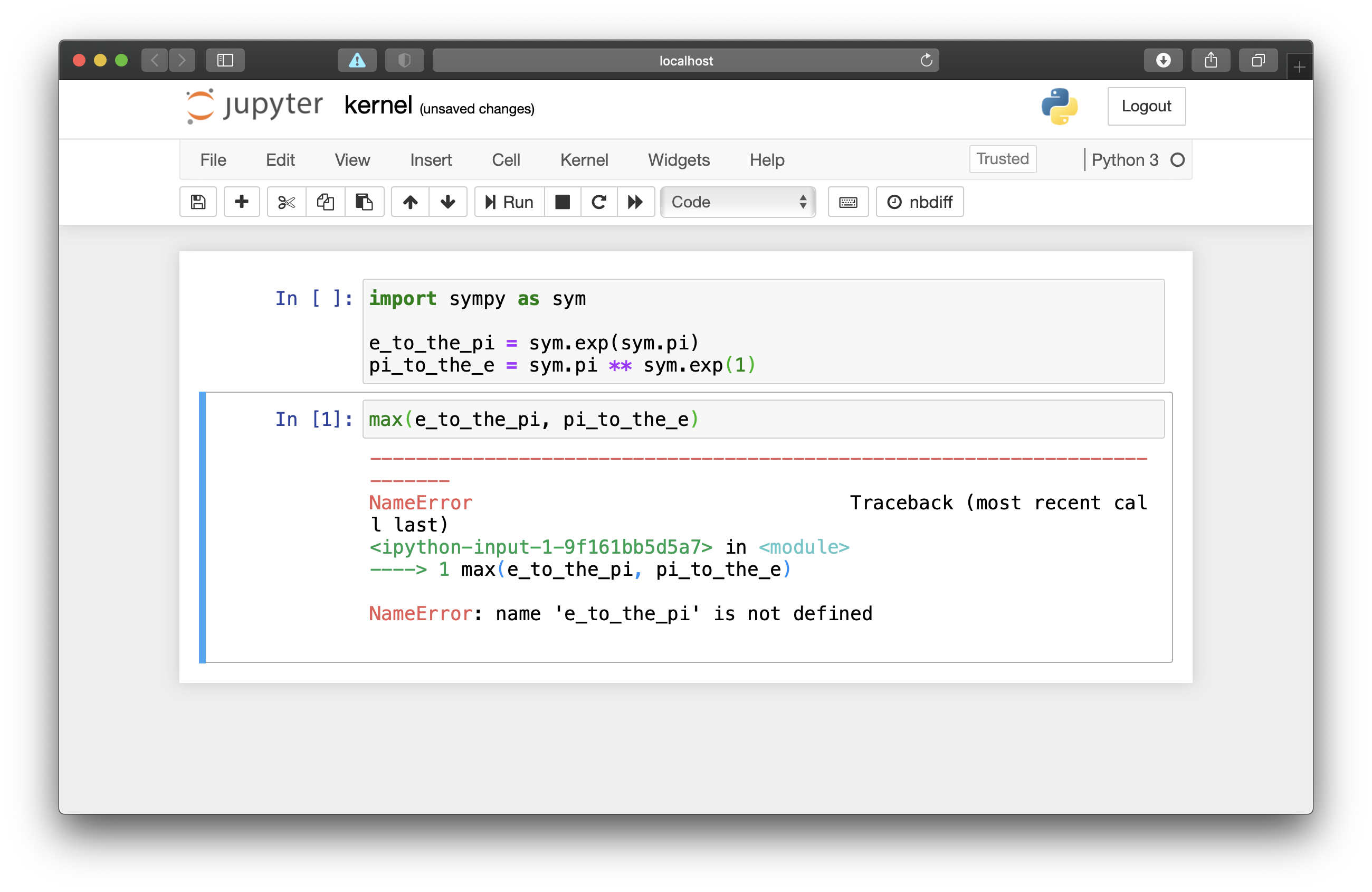Introduction
Contents
Introduction#
This book aims to introduce readers to programming for mathematics.
This is the freely accessible online edition of the book published by
Taylor & Francis.
The author acknowledges the publisher’s progressive approach to open dissemination,
which has facilitated the continued availability of this work in an openly accessible format.
Who is this book for?#
This book aims to introduce readers to programming for mathematics.
It is assumed that readers are used to solving secondary school mathematics problems of the form:
Problem
Given the function \(f:\mathbb{R}\to\mathbb{R}\) defined by \(f(x) = x ^ 2 - 3 x + 1\) obtain the global minima of the function.
Solution
To solve this we need to apply our mathematical knowledge which tells us to:
Differentiate \(f(x)\) to get \(\frac{df}{dx}\);
Equate \(\frac{df}{dx}=0\);
Use the second derivative test on the solution to the previous equation.
For each of those 3 steps we will usually make use of our mathematical techniques:
Differentiate \(f(x)\):
\[\frac{df}{dx} = 2 x - 3\]Equate \(\frac{df}{dx}=0\):
\[2x-3 =0 \Rightarrow x = 3/2\]Use the second derivative test on the solution:
\[\frac{d^2f}{dx^2} = 2 > 0\text{ for all values of }x\]Thus \(x=3/2\) is the global minima of the function.
Attention
As you progress as a mathematician, mathematical knowledge becomes more prominent than mathematical technique: often knowing what to do is the real problem, as opposed to having the technical ability to do it.
This is what this book will cover: programming allows you to instruct a computer to carry out mathematical techniques.
For example, you will learn how to solve the above problem by instructing a computer which mathematical technique to carry out.
This book covers how to give the correct instructions to a computer.
The following is an example; do not worry too much about the specific code used for now:
Differentiate \(f(x)\) to get \(\frac{df}{dx}\)#
import sympy as sym
x = sym.Symbol("x")
sym.diff(x ** 2 - 3 * x + 1, x)
Equate \(\frac{df}{dx}=0\)#
sym.solveset(2 * x - 3, x)
Use the second derivative test on the solution#
sym.diff(x ** 2 - 3 * x + 1, x, 2)
Knowledge versus technique is a brief summary.

Fig. 1 Knowledge versus technique in this book.#

